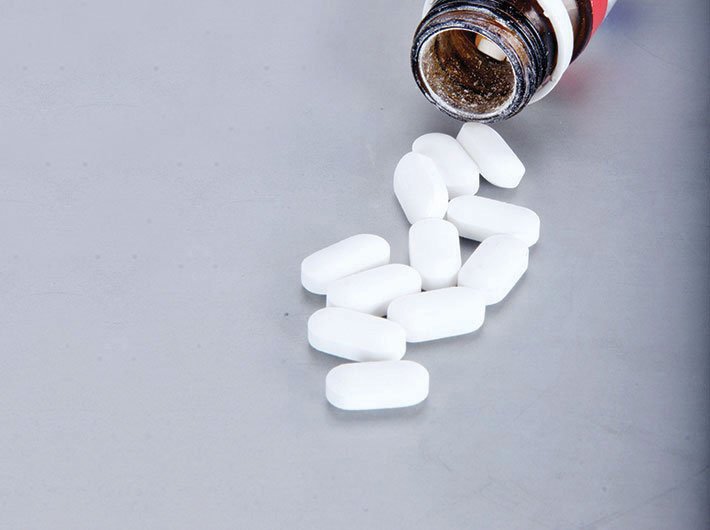In some states, stores selling generic drugs aren’t taking off, but in some they are doing well
While the centre has encouraged drug stores that sell generics (as opposed to branded medicines) under the Jan Aushadhi scheme, states have obtained mixed results in the implementation. In Andhra Pradesh, for instance, there are few stores selling generics, but they are unique in that they are run by all-women self-help groups (SHG) under the Society for Elimination of Rural Poverty (SERP) or Velugu scheme of the government. On the other hand, Kerala and Tamil Nadu have opened numerous stores selling generics and they seem to be doing well. We take a look at some of the stores.
In Chittoor district of Andhra Pradesh, there are seven such stores, run under the Anna Sanjeevani brand. Five are doing well, but two have been shut down temporarily. One of those shut down is in Pileru, about an hour away from Tirupati and two hours from Bengaluru. Suresh Reddy, the local programme officer for Velugu, says it’s closed for the past two months because the pharmacist has gone on maternity leave.
Like other such stores, it has been formed with funds from the seed capital of the Mandal Mahila Samakhya group formed under Velugu. The group has about 1,000 SHGs, each with ten members. The earnings go back to the Samakhya group. They have hired a pharmacist to run the store. Each of the 1,000 SHGs runs a store across Pileru, a small township. The stores are funded by SHG Federation. Bhuvan, the pharmacist’s husband, says the turnover of the store each month was about Rs 90,000, and his wife was paid Rs 7,000 monthly. “Our job is only to run the store,” he says.
While Bhuvan seems optimistic about the future of the shop, senior members of the SERP at the district level have other plans. The shop is just not attracting enough attention as it is behind the bus-stand and can’t be accessed by the floating population which visits Pileru. “We may have to shift it to another shop on the main road. The money invested in this shop has gone down the drain,” says Maniratnam, a district level programme officer. The case of the Anna Sanjeevini shop in Cuppam is even more unfortunate. “The panchayat wants us to vacate the shop and we will lose all the money we invested in it,” says Maniratnam. The money – about a lakh each for the two shops – cannot be recovered, he says.
What is troubling is that the promotion of generics by SHGs hasn’t really pushed the use of generics, neither in Pileru nor even in the bigger town of Chittoor. A doctor who runs a private hospital in Pileru says he’s all for generic drugs, but patients don’t go and buy them. Besides, he says, the shop isn’t too noticeable – though in fact it’s right on the main road. The doctor says that he only writes drug names in his prescriptions, not brand names, and patients can buy them from anywhere they want. What happens, actually, is patients end up buying medicines from the shop in the doctor’s own hospital.
At Madanapalle, the generic drug store has been running for seven years, perhaps the oldest in the district. Renamed Anna Sanjeevani by the government, it is quite well-known and is next to the government hospital. But daily sales hardly cross Rs 2,500-3,000, and annual returns don’t go beyond one lakh rupees, according to Velugu officials. Their shops in Renigunta and the other three places are also doing fairly well, but it hasn’t led to any huge demand for generics; nor is there much awareness about their existence.
In Kerala, though, it’s a slightly different story. For one, the Jan Aushadhi stores here are not run by SHGs. And while there is awareness of generic drugs in Kerala, unlike in Andhra Pradesh, the stores are unfortunately bogged by a chronic shortage of stocks. Many of them run parallel shops selling non-generic medicines.
Dr KS Wilson, a renowned Thrissur physician, formerly with the Elite Hospital, says he is all for generic drugs. “It’s chemists who are opposed to it. They feign shortages and try to sell non-generic drugs through their other shops.” But Dr Balagopal, head of surgery at the medical college hospital in Thrissur, says it is not always possible to rely on generics: the right combination of medicines required may not be available.
The debate continues, but despite the lack of surety of getting generics when they are needed, there are many patients who know well about them and prefer them over branded drugs. Sateeshan, a resident of Ambalapuram in Athani, Thrissur, says he buys drugs for thyroid from a generic drug store near the bus-stop. “Many a time, the drug is out of supply. So I do three things: I wait till it comes, or go to a store at the Thrissur town centre, and then, when supplies arrive at the store in Athani, near my house, I buy from there too. This way, I’m able to stock up for two months.”
Generic stores have a dedicated following in Kerala, with clients like Sateeshan swearing by them despite the shortages. Says Aravindan, who runs a shop on Thrissur Road, “I used to spend about Rs 2,000 a month on my mother’s bills. Now, it comes to barely Rs 300. I get drugs for diabetes, blood pressure, thyroid, acid reflux and cholesterol. The only difference besides the price is that for some ailments, instead of just one tablet, my mother has to take two or three.”
At a time when the cost of healthcare is soaring, with private hospitals and pharma giants raking in while the poor find treatment unaffordable, it is imperative that the government encourages the use of generics and campaigns to reduce the doubts people have about using them.
feedback@governancenow.com
(The article appears in the February 28, 2018 issue)

